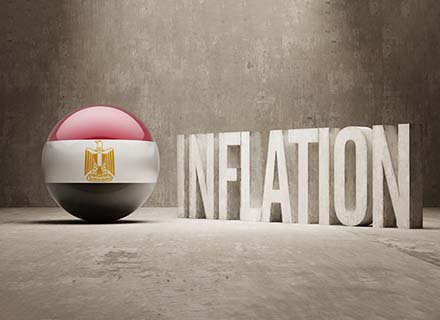Egypt’s CAPMAS (Central Agency for Public Mobilisation and Statistics) has reported that food and beverage costs drove the Northeast African country’s annual urban consumer price inflation up to 35.7% in February 2024 from 29.8% in January.
The inflation rise preceded the recent currency depreciation. After a year of stability at 30.85, the central bank allowed the Egyptian pound to plunge to 50 to the dollar.
The consensus February inflation forecast by 14 analysts was 25.1%. Egypt’s inflation rate fell from September 2023’s record 38.0% before February 2024.
Prices jumped 11.4% in February, up from 1.6% in January. Food costs rose 15.9% from 1.4% in January.
Despite the advantageous base year contribution of -5.5%, Allen Sandeep of Naeem Brokerage said that Egypt’s annual reading rose sharply due to a surge in monthly inflation of both food (F&B) and non-food items.
Recently, Egypt’s Finance Minister Mohamed Maait informed about the Northeast African nation signing a support package with the IMF to reduce its budget deficit. Egypt’s main budget surplus would exceed 3.5% in the July fiscal year, he told in a press conference.
The primary surplus excludes interest payments, which accounted for over half of the expenditures in the seven months to the end of January and left Egypt in deficit.
In February 2024, the finance ministry predicted a 2.5% primary general budget surplus for fiscal 2023–24.
Egypt signed an IMF-led agreement to sell Ras al-Hikma development rights to Abu Dhabi for USD 24 billion. Maait stated that the World Bank provided USD 3 billion.
“The nice element is the Ras al-Hikma contract, a not-small percentage of which will enter the general budget in pounds,” Mohamed Maait told reporters. Ras al-Hikma ensures a lower deficit than planned.
Suez Canal and other revenue dropped, but expenditure rose due to a falling currency and rising interest rates on Egypt’s obligations, according to Maait.
As per the analysts, the Egyptian Central Bank’s move to liberalise the exchange rate of the local currency against the US dollar, along with the rise in interest rates by 6% is expected to have both positive and negative effects on the Northeast African country’s economy.
An immediate positive result here will be the anticipated dollar flows into the Egyptian market, with experts pointing to the importance of good management to achieve the utmost benefit for the overall economy. However, on the other hand, Egypt may continue reeling under the burden of the high inflation rate caused by the currency devaluation.
“The demand for the dollar is expected to continue until the release of goods seized at Egyptian customs and ports, which some estimated at about USD 8 billion,” stated media outlet Asharq Al-Awsat.

